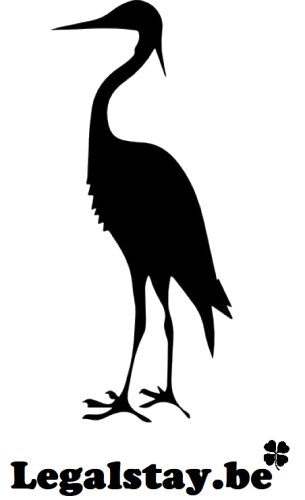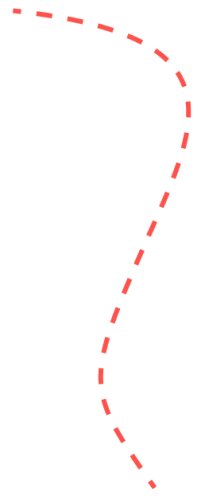Best Drunk Driving Lawyers in Hasselt
Share your needs with us, get contacted by law firms.
Free. Takes 2 min.
List of the best lawyers in Hasselt, Belgium
About Drunk Driving Law in Hasselt, Belgium
Drunk driving in Hasselt is governed by Belgian federal traffic law and enforced locally by the police and the Limburg Police Court in Hasselt. The general legal alcohol limit for drivers in Belgium is 0.5 grams per liter of blood alcohol concentration or 0.22 milligrams per liter in breath. If police suspect alcohol influence, they can require a roadside screening test and, if positive, an evidential breath test or a blood test. Sanctions can include immediate driving bans, fines, court-ordered license suspensions, mandatory education or treatment measures, and in serious or repeat cases possible imprisonment. Hasselt follows the same legal framework as the rest of Belgium, with local procedures handled by the Police Court of Limburg and the Public Prosecutor for Limburg.
Even a first offense can have consequences that affect your license, insurance, employment, and ability to travel for work. Because procedures and outcomes depend on precise facts such as your measured alcohol level, prior history, cooperation with testing, and any aggravating circumstances like accidents or injuries, timely legal advice is important.
Why You May Need a Lawyer
You may need a lawyer if you were stopped at a checkpoint or after a traffic incident and asked to take a breath or blood test. A lawyer can assess whether the stop, testing, and police interview complied with legal requirements, and whether any procedural issues could affect your case. Representation is especially important if your result is high, if you refused testing, or if an accident, injuries, or property damage occurred.
Legal help is also valuable if the prosecutor proposes a settlement, if you are summoned to the Police Court in Hasselt, or if your license was seized or you received an immediate driving ban. A lawyer can negotiate with the prosecutor, prepare your defense, present mitigating factors, and request alternatives such as education or an alcohol interlock if appropriate. If you are a non-Dutch speaker, a lawyer can help assert your language and interpreter rights. If cost is a concern, a lawyer can advise whether you qualify for partially or fully subsidized legal aid.
Local Laws Overview
Legal limits and testing. The general limit is 0.5 g per liter in blood or 0.22 mg per liter in breath. Police typically use a roadside screening device, followed by an evidential breath test. If a breath test is not possible or if you contest the result, a blood test can be used. Refusing lawful testing is itself an offense and is sanctioned at least as heavily as a high test result.
Immediate measures. Depending on the reading, police can impose a short immediate driving ban. In more serious cases, the public prosecutor can order a temporary withdrawal of your license, usually for 15 days initially, which can be extended. You will receive documents explaining if and how you can contest or request limited driving permission, for example for work.
Court penalties. If your alcohol level is above the lower threshold or if there are aggravating factors, you can be summoned to the Police Court of Limburg in Hasselt. Judges can impose fines, a driving disqualification from 8 days up to several years, and in serious or repeat cases possible imprisonment. The court can also order an alcohol interlock, a medical-psychological evaluation, and an alcohol awareness course. Penalty ranges are periodically indexed, so exact amounts change over time.
Aggravating factors. Higher alcohol readings, refusal of testing, accidents, injuries, dangerous driving, prior convictions within a few years, or driving a heavy or passenger vehicle can significantly increase penalties. Repeat offenses can lead to longer disqualifications and stricter measures.
Vehicles covered. The alcohol rules apply when operating a motor vehicle on public roads. Courts can impose a driving disqualification that applies to motor vehicles even if the offense occurred on an e-scooter. Cycling while intoxicated can also be penalized, and a court may still impose a driving ban for motor vehicles depending on circumstances.
Language and procedure. In Hasselt, proceedings are conducted in Dutch. If you do not understand Dutch, you have the right to an interpreter during questioning and in court. If you are detained for questioning, you have the right to a brief consultation with a lawyer before your first police interview. You also have the right to remain silent and the right to receive copies of key documents in your case file at the appropriate stage.
Insurance and employment. Insurers often seek recourse after a drunk driving accident, meaning they may pay the third party and then reclaim the amount from you. A conviction can appear on your criminal record and affect certain jobs, especially those that require driving or high trust. Employers and professional sectors can impose stricter internal rules.
Frequently Asked Questions
What is the legal alcohol limit in Hasselt?
The Belgian legal limit applies in Hasselt. It is 0.5 grams per liter of blood or 0.22 milligrams per liter in breath. Even below the limit, you can be penalized if your driving is clearly impaired.
What happens if I refuse a breath test?
Refusal is a separate offense that is typically sanctioned at least as heavily as a very high alcohol result. You risk an immediate driving ban, a court summons, heavy fines, and a lengthy license suspension.
Will I lose my license on the spot?
Police can impose a short immediate driving ban. In more serious cases, the prosecutor can withdraw your license for a period such as 15 days, which can be extended. Later, the court can impose a longer disqualification if you are convicted.
Do I have to go to court for a first offense?
It depends on your alcohol level and the circumstances. Lower readings may lead to an administrative settlement, while higher readings, refusal, or accidents usually result in a court summons to the Police Court in Hasselt.
Can I drive a company vehicle or keep driving for work?
If your license is withdrawn or you are disqualified, you may not drive any motor vehicle, including company cars. In limited situations and for certain offenses, a court can grant a restricted license, but this is not guaranteed and depends on legal conditions and your case.
Will a conviction go on my criminal record?
Yes. Traffic convictions, including for drunk driving, are recorded. They can appear on the extract required for certain jobs. How long they appear and what is shown depends on the type of extract requested and applicable rules.
What is an alcohol interlock and when is it imposed?
An alcohol interlock is a device that prevents a vehicle from starting if alcohol is detected in the driver’s breath. Courts can order it, typically for high alcohol readings or repeat offenders. It can be combined with education or treatment obligations.
I am a foreign driver. Do Belgian penalties apply to me?
Yes. Belgian authorities can ban you from driving in Belgium and can notify your home country. Your home country may also take action under its own rules. If your physical license is seized, you should contact a lawyer promptly.
Can I challenge the accuracy of the breath or blood test?
Yes. Challenges can relate to device certification, calibration, timing, procedural errors, health factors, or whether you were offered a blood test when required. A lawyer can review the file and engage technical experts if needed.
Will my insurance cover damages after a drunk driving accident?
The insurer may compensate third parties and then seek reimbursement from you. Your own coverage for vehicle damage may be excluded. Policy terms vary, so notify your insurer and obtain legal advice promptly.
Additional Resources
Politiezone Limburg Regio Hoofdstad in Hasselt handles local traffic enforcement and can provide practical information about procedures and property retrieval after a license seizure.
Politierechtbank Limburg - Afdeling Hasselt is the Police Court that hears drunk driving cases arising in and around Hasselt.
Parket Limburg is the Public Prosecutor’s Office that decides on prosecutions and settlement offers for traffic offenses.
FOD Mobiliteit en Vervoer publishes federal road traffic rules and information on driving licenses and penalties.
FOD Justitie provides information on courts, criminal records, and victims’ services.
Vias institute offers road safety research, education, and information about alcohol awareness programs and interlock systems.
Orde van Vlaamse Balies and the local bar association in Limburg can help you find a lawyer experienced in drunk driving cases.
Bureau voor Juridische Bijstand Limburg can inform you about eligibility for partially or fully subsidized legal aid based on income.
Next Steps
Do not ignore any documents you received. Read the police report, the notice of an immediate driving ban, and any summons or settlement proposal. Deadlines for responding can be short. If your license was taken, note the stated period and conditions for retrieving it.
Contact a lawyer as soon as possible. Early advice can influence whether you accept a settlement, how you prepare for court, and what evidence to preserve. Bring all papers, including test results, times, medical conditions or medications, and names of any witnesses.
Consider whether you need an interpreter. If you do not understand Dutch, tell the police or the court in writing and request an interpreter. You also have the right to a brief consultation with a lawyer before your first police interview if you are detained for questioning.
Do not drive if you are under a ban. Driving while disqualified is a separate offense that can lead to heavier penalties. If you need to travel for work, ask your lawyer whether limited driving permission is legally available in your situation.
Prepare mitigation. Evidence of stable employment, clean driving record, steps taken to address alcohol use, voluntary education, or installation of an alcohol interlock can be persuasive when the court considers penalties.
Keep insurance and employer informed. Notify your insurer promptly after any accident. If driving is part of your job, check internal policies. A lawyer can advise on what to disclose and how.
Important note. This guide is general information for Hasselt and the wider Belgian legal framework. It is not legal advice. Laws and penalty amounts are updated regularly. For advice tailored to your situation, consult a qualified traffic lawyer in Hasselt or elsewhere in Belgium.
Lawzana helps you find the best lawyers and law firms in Hasselt through a curated and pre-screened list of qualified legal professionals. Our platform offers rankings and detailed profiles of attorneys and law firms, allowing you to compare based on practice areas, including Drunk Driving, experience, and client feedback.
Each profile includes a description of the firm's areas of practice, client reviews, team members and partners, year of establishment, spoken languages, office locations, contact information, social media presence, and any published articles or resources. Most firms on our platform speak English and are experienced in both local and international legal matters.
Get a quote from top-rated law firms in Hasselt, Belgium — quickly, securely, and without unnecessary hassle.
Disclaimer:
The information provided on this page is for general informational purposes only and does not constitute legal advice. While we strive to ensure the accuracy and relevance of the content, legal information may change over time, and interpretations of the law can vary. You should always consult with a qualified legal professional for advice specific to your situation.
We disclaim all liability for actions taken or not taken based on the content of this page. If you believe any information is incorrect or outdated, please contact us, and we will review and update it where appropriate.









